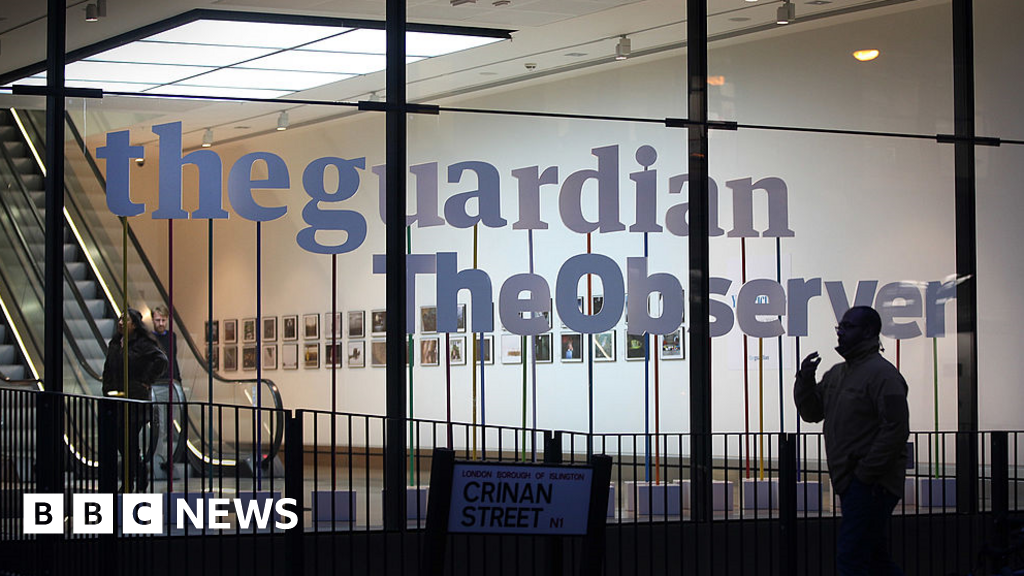Phumeza Tisile is a survivor with a warning for the world.
The South African healthcare activist almost died from tuberculosis in the early 2010s, after a crucial drug to treat it did not work in her case. At one point, her doctors told her to talk to a priest, as they thought she would not live.
Tisile rallied and finally rid herself of the disease in 2013, after more than three-and-half punishing years of treatment. The trauma animated her to campaign to curb the spread of medicine-resistant “superbugs”, such as the one that nearly killed her.
This week Tisile will support fellow activists lobbying a high-level UN meeting on tackling drug resistance, a global scourge that is alarming health experts, governments and the private sector. TB is central to this potentially catastrophic pharmaceutical failure, which means tackling it is crucial to averting what has been branded a “silent pandemic”.
“Imagine now we have a disease and the antibiotics don’t work because we’ve overused them,” says Tisile, who will join hybrid events surrounding the UN general assembly gathering in New York this week. “Every day we learn something new about superbugs — and the fact that things are changing in a very big way.”
The forbidding future Tisile conjures from a sunlit room at her Cape Town home is approaching all too fast. Tuberculosis is a prime example of the growing threat from antimicrobial resistance to medicines on which humanity has relied for decades.
Tedros Adhanom Ghebreyesus, the WHO’s director-general, warned last week that AMR endangered a “century of medical progress” and could turn infections treatable today into a “death sentence”.
Drug-resistant strains of TB are estimated already to account for about a third of the millions of deaths annually associated with AMR. In the World Health Organization’s Europe region, an estimated quarter of new TB patients and half of previously treated patients experience drug resistance — the highest proportion globally.
The global TB caseload has been rising since 2020, after years of gradual decline. While countries in Africa and other low and middle-income states suffer by far the most, case numbers have been rising in some rich nations. In England, they climbed last year above pre-Covid pandemic levels, according to provisional data.

The battle against TB offers essential lessons for the wider fight against superbugs and “should be recognised in its true dimension”, says Suvanand Sahu, deputy executive director of the Stop TB Partnership.
“The experience of diagnosing and treating TB could be very important when we are trying to do this for other pathogens,” says Sahu, whose coalition brings together more than 1,600 organisations from 120 countries across the public, private and non-governmental sectors. “TB should be the pathway to look at for our overall AMR response.”
TB campaigners want the world to understand that drug resistance to the disease offers a key to understanding the nature of AMR and what society needs to do combat it. Lessons learnt from TB about what to do — and what to avoid — could be critical to winning the war against superbugs.
“You need new drugs, you need combinations, you need good diagnostics — we don’t have those for AMR,” says Dame Sally Davies, the UK’s special envoy on antimicrobial resistance, of the importance of TB in this wider struggle.
“You need a good health service that can help patients get their treatments and continue their treatments — and it all needs funding.”
Antimicrobial resistance describes the way bacteria, viruses and other pathogens evolve resilience to the drugs used to treat them.
As a result, infections become harder to shift and persist for longer, increasing the risk of severe illness and death — and the chances of sufferers spreading their strain of the disease to others.
Bacterial AMR is already a global killer. It was associated with 4.71mn deaths globally in 2021 and was directly responsible for 1.14mn, according to a Lancet study published last week. It could burden the world with more than $1tn extra annual healthcare costs by 2050 and hit GDP by up to $3.4tn annually by 2030, the World Bank has estimated.
Resistance is driven by the excessive use and careless management of life-saving drugs. Overprescription, the failure to complete the full dosage course and the use of human antibiotics for livestock have all worsened it.
Climate change is a further intensifier, as higher temperatures promote bacterial growth and extreme weather events such as flooding provide conditions for resistant bugs to pass genetic material to less evolved ones.
International alarm about AMR has grown, with the private sector weighing in. A group of 80 investment institutions called this month to cut the use of antibiotics in the food chain, branding it “not just a health necessity but also an economic imperative”.
TB is integral to the AMR conundrum. It killed 1.3mn people in 2022, according to the WHO, making it the second-most deadly infectious disease after Covid-19. It is caused by a bacterium spread through the air by coughing, sneezing and spitting. It most often affects the lungs, although it can hit many other areas including the brain, kidneys and spine. Its symptoms can include fevers, chest pains and general weakness, while treatment generally lasts many months if not years. Patients often experience lasting after-effects such as lung damage and hearing loss — as well as social stigma.
The disease thrives in densely populated and deprived areas. It sometimes grows in communities where people may avoid health authorities because they are worried about their immigration status, says Lord Ara Darzi, author of a government-commissioned report published this month on Britain’s NHS.

“It’s a big city problem, it’s partly an immigration problem, partly an educational problem,” he says. “And the sad fact is, it’s partly a neglect problem by the system.”
Some of the highest rates of drug-resistant TB in the world are found in eastern Europe and central Asia, particularly former Soviet republics. The collapse of communist authorities from 1989 devastated health systems and allowed the disease to flourish, with little or no surveillance for AMR.
The impact of those chaotic times reverberates today. “They lost control, they had no logistics chains to ensure drug supplies,” recalls Oxana Rucsineanu, who suffered from drug-resistant TB in Moldova between 2007 and 2010 and still finds physical exertion tiring.
“TB was never seen as an AMR problem — and so it was somehow separated from the AMR agenda.”
TB is a potent AMR spreader in part because it is a largely concealed enemy.
About 1.8bn people — almost a quarter of the world’s population — are estimated to carry TB bacteria. These cannot be passed on if the infection remains latent, but they can if the bacteria become active and multiply to trigger the disease. When the condition does take hold, symptoms can be mild for a while, allowing time for people to pass it to others unwittingly.
There is a TB vaccine but it has significant limitations. The BCG jab, named for its inventors, Albert Calmette and Camille Guérin, and familiar to many westerners from their schooldays, is more than a century old.
While it gives a degree of protection to young children against the most severe forms of TB, some researchers argue it offers little or nothing to adolescents and adults. A further drawback is its potential to cause false positives in skin tests for TB bacteria.

Spotting strains of TB that are drug resistant often takes time, providing further opportunities for them to spread. The bacterial cultures traditionally used to incubate and identify pathogens from bodily fluids can take days or weeks to perform. The delay can be magnified in poorly funded health systems, where facilities outside urban areas may need to send samples to centralised testing hubs.
Once TB is diagnosed, treatments are complicated and generally based on a combination of several medicines. That increases the number of possible avenues for AMR to develop.
“The rapid escalation of drug-resistant TB is already compromising the efficacy of newly developed antibiotics,” says Titus Divala, head of epidemics and epidemiology at Wellcome, the international charitable foundation. “We still have significant gaps in our understanding of the burden, distribution and risk factors of drug-resistant TB, especially for new drugs, hampering our ability to develop effective strategies.”
The waning effectiveness of rifampicin, a main frontline treatment for TB, is emblematic of the wider AMR predicament. It is part of a class of antibiotics developed in the 1960s from molecules produced by a bacterium discovered in a French pine forest. The researchers named the new medicines rifamycins, in homage to the French jewellery heist film Rififi.
Rifampicin has proved a diamond of a drug for decades. Its history follows a pattern common for many core antibiotics. It exploits work already done by nature and is useful for treating a variety of conditions, including leprosy and Legionnaires’ disease.
The jeopardy now facing rifampicin echoes the fate of other drugs on which the world has long relied. In 2020, almost half a million people suffered from rifampicin-resistant TB. That inflicted an estimated extra 6.9mn disability-adjusted life years — a measure of loss of full health — on those patients.
It is a grim irony of antibiotic invention that the best way to prevent resistance developing to an effective new drug is not to use it. In 2012, the antibiotic bedaquiline became the first novel anti-TB medicine to win US regulatory approval in four decades and has since become an important drug in fighting the disease.
But barely a decade after bedaquiline’s introduction, resistance has already been observed. A study on South African patients published in The Lancet Microbe last year pointed to the dangers of prescribing bedaquiline without first surveilling for emerging AMR. “Routine drug susceptibility testing should urgently accompany scale-up of new drugs,” the researchers warned.
AMR further thrives in places plagued by institutional breakdown and natural disasters. In Pakistan, which has a high TB caseload and suffered devastating floods in 2022, drug resistance is already high in pathogens such as some that cause the waterborne disease typhoid fever.
Sania Nishtar, chief executive of Gavi, the international vaccine alliance, recalls the suffering she saw among drug-resistant TB patients when she worked as a physician in Pakistan. It has spread because of a “constellation of factors” linked to failures of rules and systems, she says. These include poor medicine quality and counterfeiting, patients failing to finish antibiotic courses, and people self-medicating by buying drugs over the counter without medical advice.
“Everything is linked, because if a country’s governance goes downhill, it impacts the rigour of its regulatory agencies, quackery starts burgeoning, substandard drugs start burgeoning,” she says. “It all compounds.”
The flipside to drug-resistant TB’s growing menace is that — as with other persistent disease threats — we are finding new ways to deal with it.
A new vaccine to finally supersede the BCG began final-stage clinical trials this year. Preliminary results suggest it is about 50 per cent effective at stopping the development of active TB disease — potentially enough to make difference.
Molecular tests for biological markers that reveal both TB and some types of drug resistance can shorten diagnosis times from days or weeks to hours. Possible new medicines and novel combinations of existing drugs are being investigated. The Global Fund to Fight AIDS, Tuberculosis and Malaria is rolling out a six-month multi-medicine treatment regimen that could be a “game changer”, says Mohammed Yassin, a senior TB adviser at the organisation.

AMR has intensified greatly since the last high-level UN meeting on it eight years ago — and the Covid pandemic has changed the psychology of global public health. While Covid initially took money, attention and medical expertise away from TB, the resonances between the two diseases sharpened people’s perceptions. Covid showed the devastating impact of an airborne disease, even if it is far more easily transmissible than TB. The pandemic underscored the central role of diagnostics, as well as vaccines and treatments, in curbing the spread of infectious conditions.
Now campaigners such as Tisile have pushed tuberculosis to prominence in the AMR agenda — and highlighted the importance of integrating efforts to tackle both. In May, a draft leaders’ declaration for this week’s UN meeting declared TB a “key component of the global challenge of antimicrobial resistance”.
Tisile likes to climb mountains both recreationally and in her campaigning since her near-death experience. She believes the fundamental significance of the drug-resistant TB threat is finally being recognised globally. “This year things are really, really changing,” she says. “The world leaders have noticed it’s becoming a problem.”
Additional reporting by Sarah Neville
Data visualisation by Clara Murray and graphic illustration by Ian Bott






































































































































You must be logged in to post a comment Login